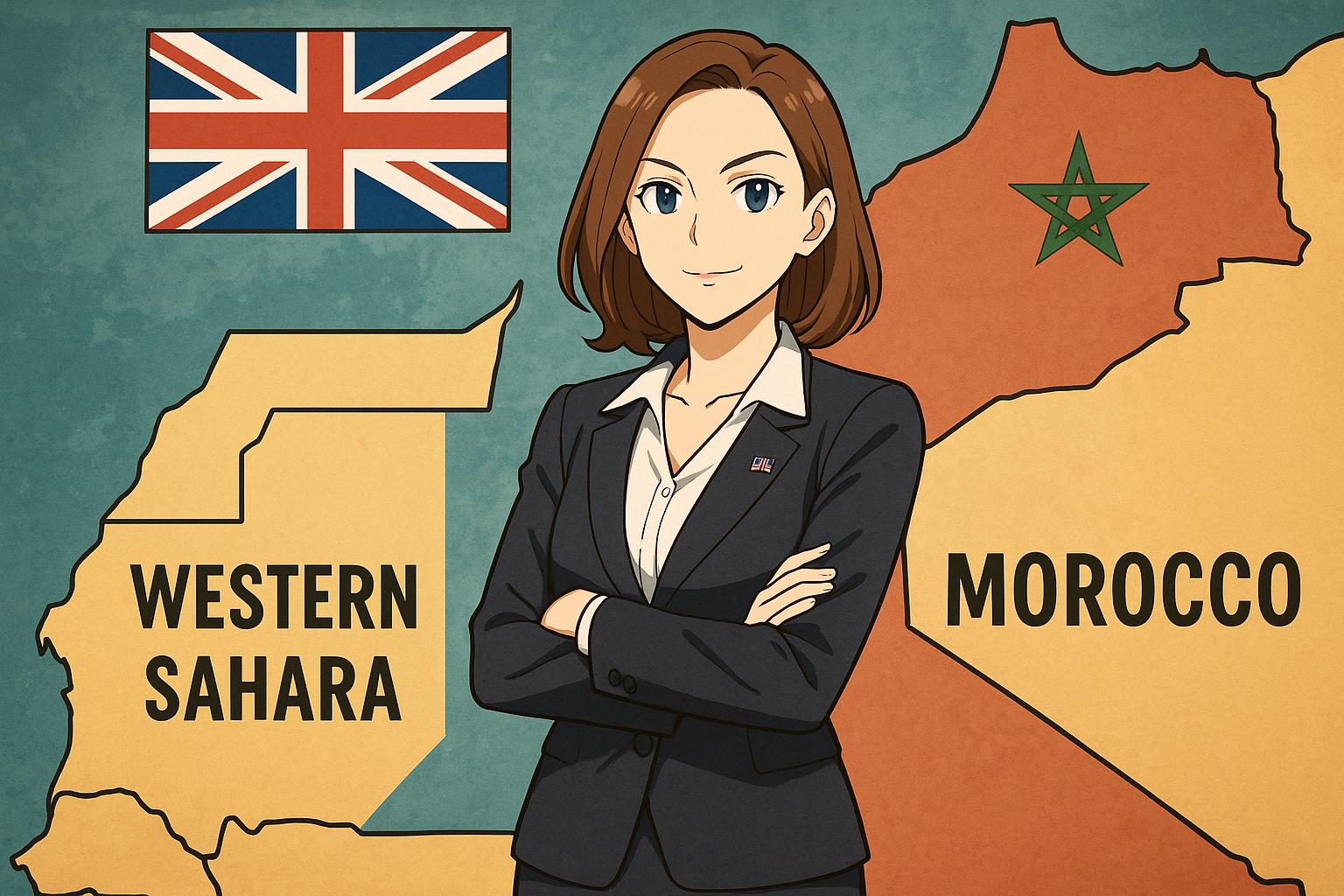The UK government has marked a significant shift in its foreign policy by officially endorsing Morocco's 2007 autonomy plan for Western Sahara, a territory entangled in a nearly five-decade-long dispute. This decision places the UK alongside countries such as the United States, France, and Spain, who have similarly backed Morocco’s claims. As Foreign Secretary David Lammy stated during a recent visit to Rabat, the plan is presented as the "most credible, viable, and pragmatic" solution to the ongoing conflict, which has seen Morocco at odds with the pro-independence Polisario Front since Spain's withdrawal in 1975.
The endorsement is not merely a political manoeuvre; it is intricately linked to a burgeoning economic partnership between the UK and Morocco. Anticipated infrastructure projects associated with the 2030 FIFA World Cup, among others, are expected to deliver substantial economic returns, particularly for British firms. The UK government has committed to playing a significant role in Morocco’s extensive public procurement opportunities, valued at around £33 billion over the next three years. This includes a noteworthy £1.2 billion project for Casablanca Airport and a £2 billion investment in healthcare reform, which features plans for a new 250-bed hospital, poised to generate revenue for the NHS through clinical and financial expertise.
This realignment in British policy towards Morocco signals a recognition of the "progressive realism" strategy that aims to enhance stability in North Africa while fostering economic ties. Lammy emphasized that promoting growth and prosperity would be central to this partnership, stating, "Africa has one of the greatest growth potentials of any continent - this young, dynamic population makes the continent an engine room for growth." He articulated that the UK sees its relationship with Morocco as a model for future engagements across Africa, especially in light of Morocco's growing significance as a strategic partner in trade and investment.
However, this move is not free from controversy. The endorsement of Morocco's territorial claims is likely to exacerbate tensions with Algeria, which supports the Polisario Front’s aspiration for independence and self-determination in Western Sahara. Critics suggest that the UK’s shift may complicate its diplomatic relations in the region, especially given Algeria's longstanding opposition to Moroccan expansionist policies. Despite the UK's affirmation of Morocco's autonomy proposal, the ongoing humanitarian implications for the Sahrawi people—who have faced displacement and conflict—remain a contentious issue.
The international community, particularly the United Nations, continues to advocate for a referendum to determine the future of Western Sahara, a goal that has repeatedly been stalled by disagreements over voter eligibility criteria and ongoing hostilities that resumed in 2020. Thus, while the UK's endorsement of the autonomy plan reflects a strategic pivot towards bolstering economic ties with Morocco, it also places the UK squarely at the centre of a complicated geopolitical landscape where the aspirations of the Sahrawi people hang in the balance.
With this new direction, the UK government aims not only to solidify its commercial interest in Morocco but also to reassert its influence in North Africa, a region seen as pivotal for future economic collaboration. As these developments unfold, the implications for regional stability, economic growth, and human rights will require careful monitoring in the context of this newly endorsed relationship.
📌 Reference Map:
- Paragraph 1 – [1], [4]
- Paragraph 2 – [1], [2], [3]
- Paragraph 3 – [5], [6]
- Paragraph 4 – [3], [7]
- Paragraph 5 – [6], [2]
Source: Noah Wire Services
